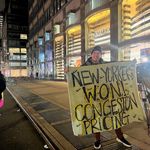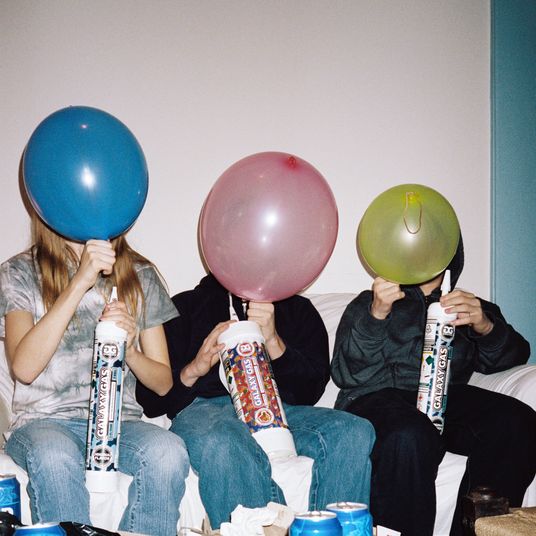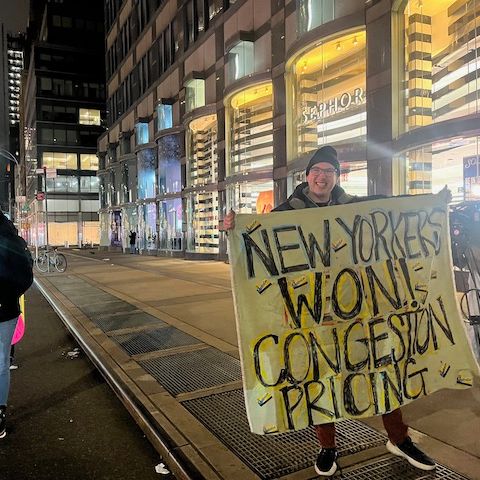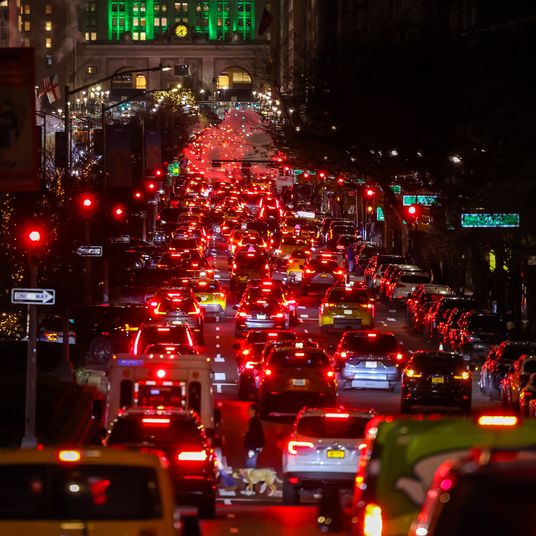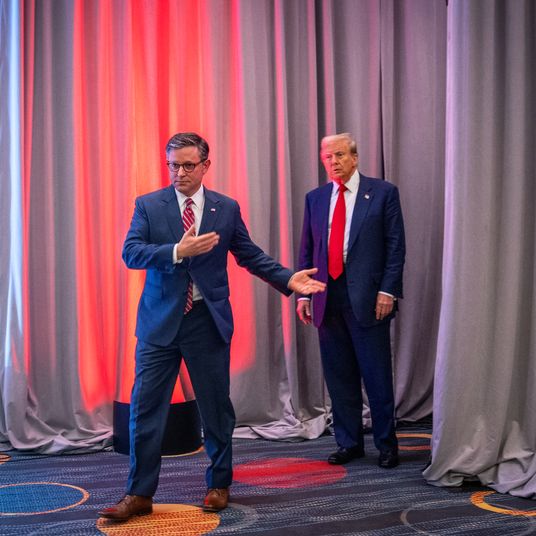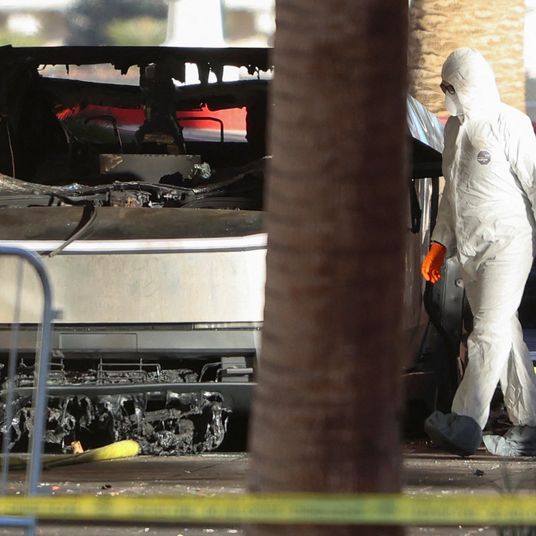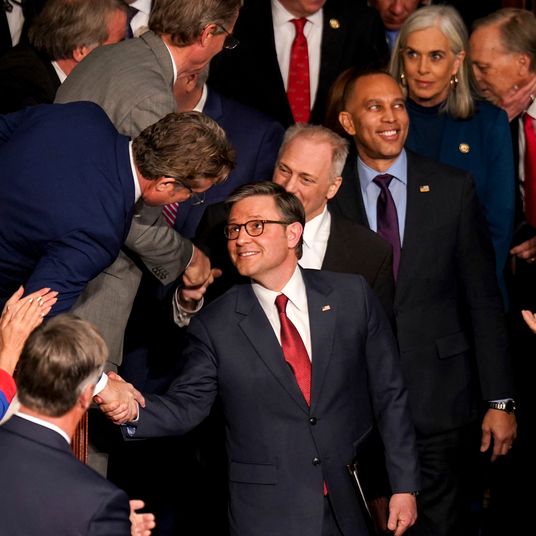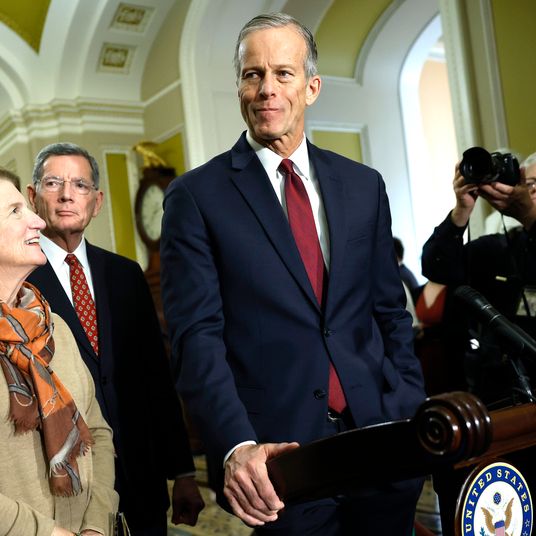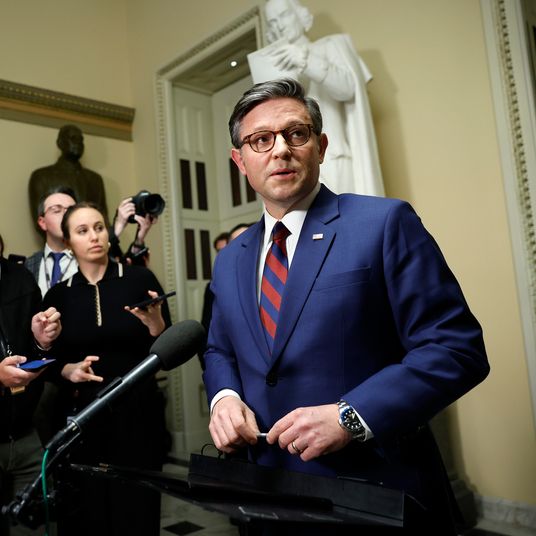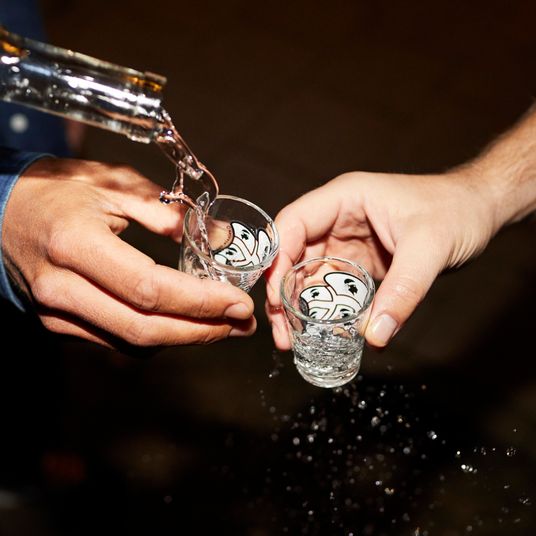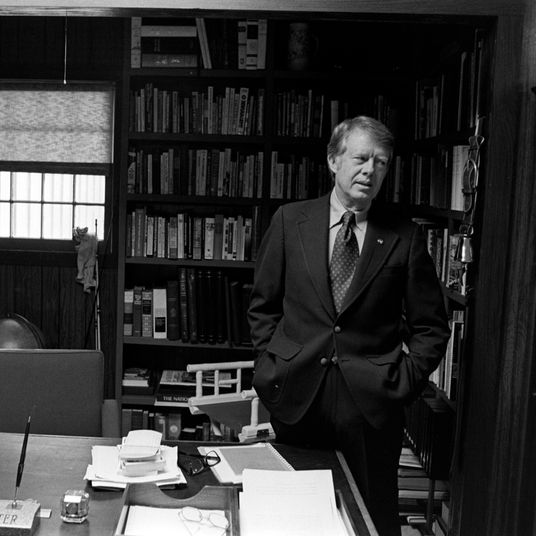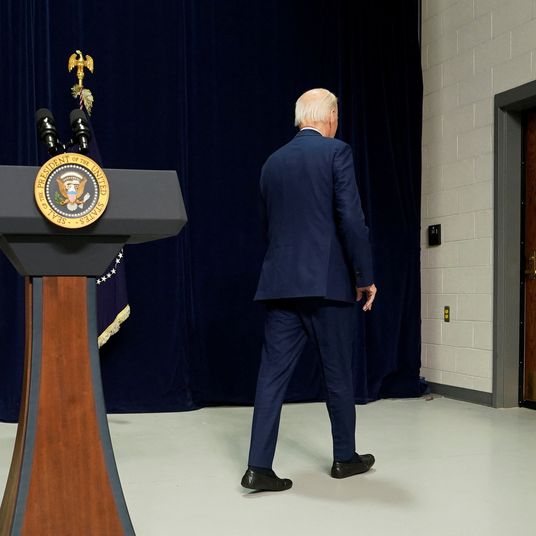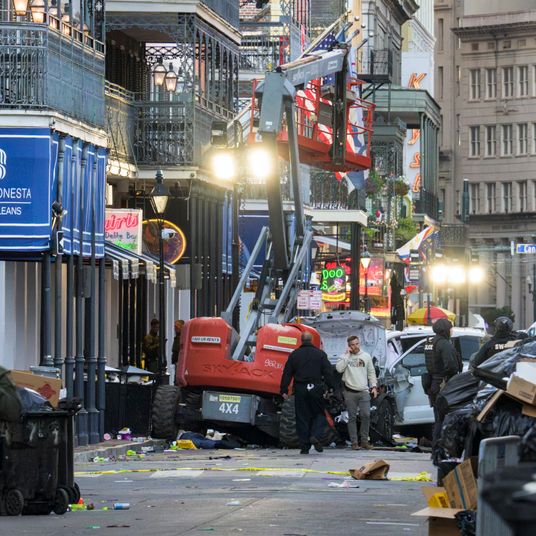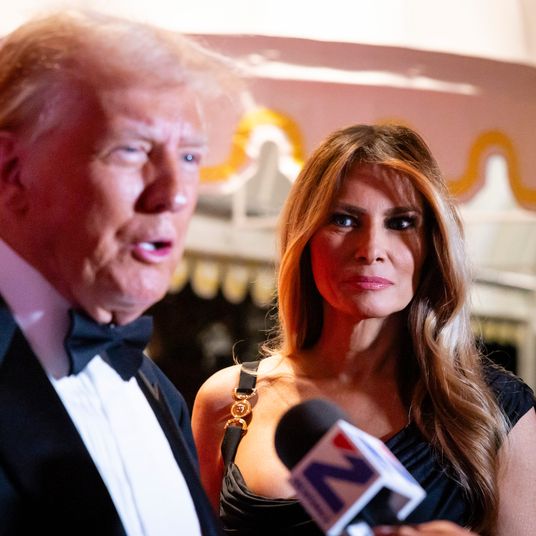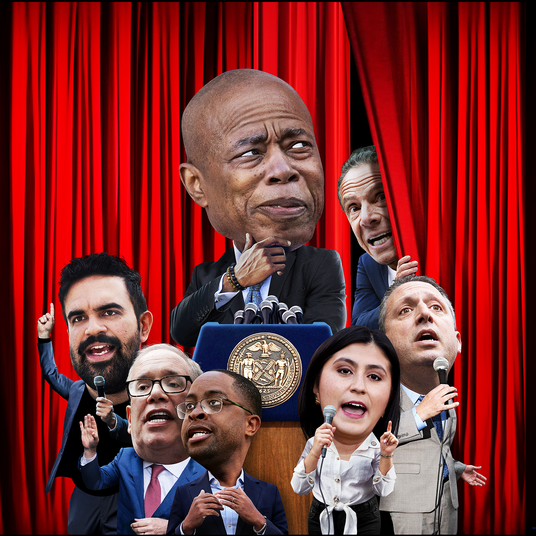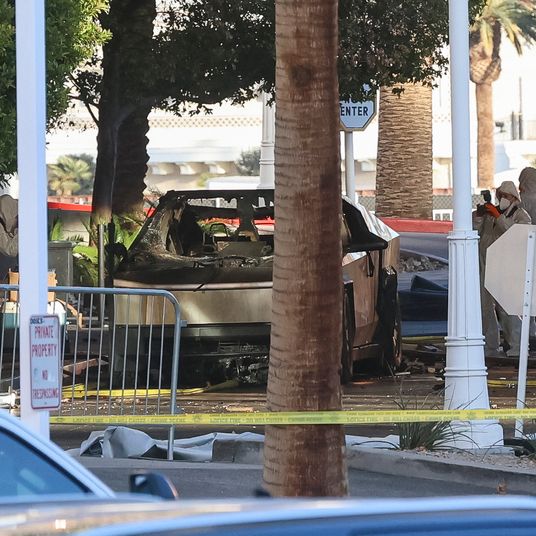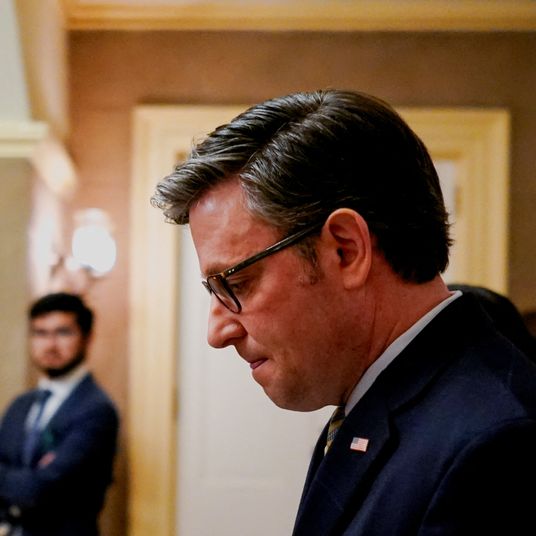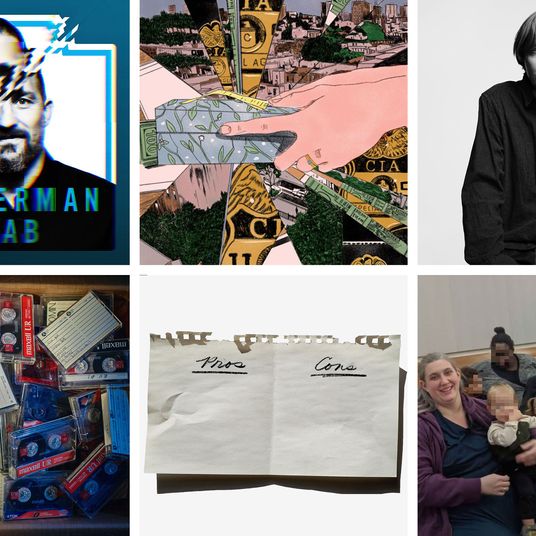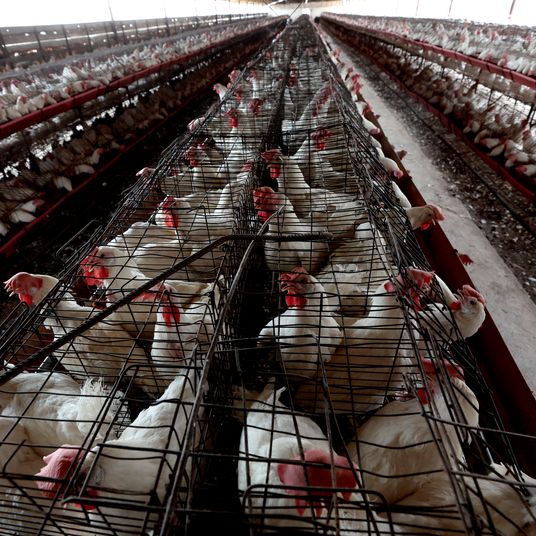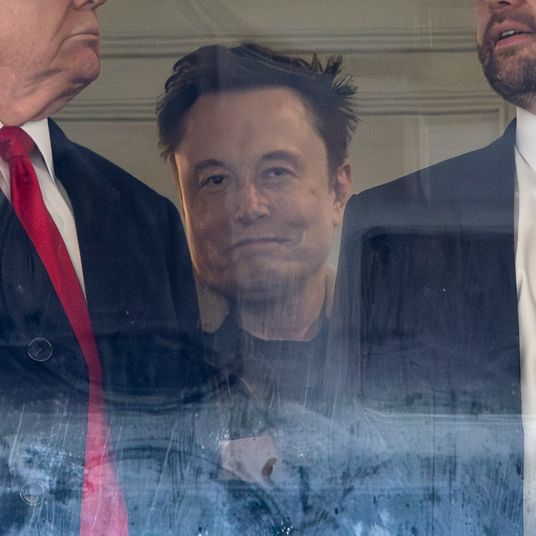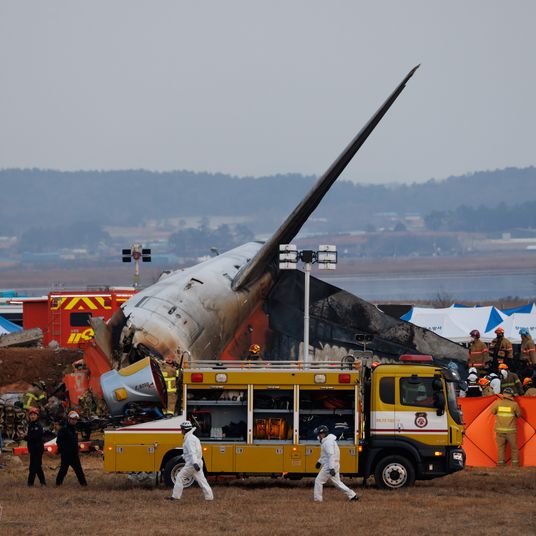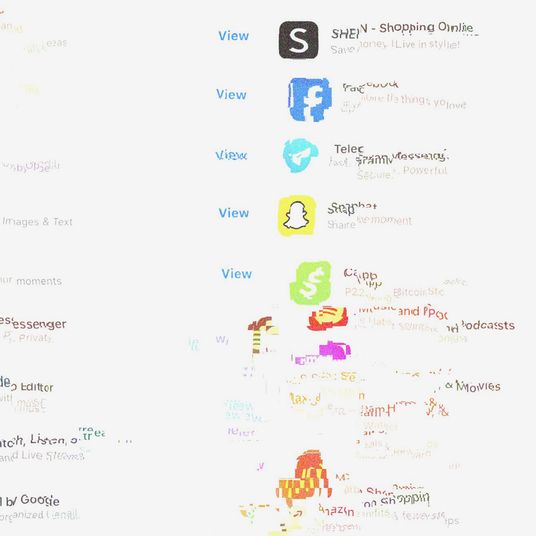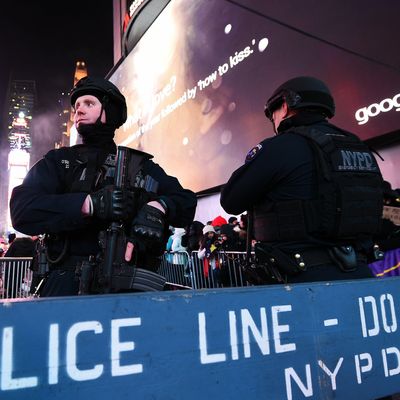
What are Pat Lynch and his policemen really after? The protests that began theatrically, in rhetoric and gesture — Lynch, the head of New York’s Patrolman’s Benevolent Association, roaring that “blood on the hands starts on the steps of City Hall in the office of the mayor” after the murders of officers Rafael Ramos and Wenjian Liu, a phalanx of cops turning their backs on the mayor at their funerals — have escalated into a work stoppage so comprehensive that it is hard to find a precedent. Across all precincts, while denying explicit coordination, the police seem to have simply decided to stop enforcing minor crimes, a work stoppage whose cynicism has alarmed even the New York Post. It is hard, too, to find a point; none has been made explicit. Perhaps this is some shrewd tactical play for a better contract or for more control over officer discipline, but the sense of grievance and betrayal voiced by union officials and cops in the city and around the country seems to run deeper than that. If this is an emotional episode and not a tactical one, then the better question to ask is probably not what the policemen are after but what they are dwelling on. More and more, that seems to be their own alienation, and difference.
Yesterday morning, for instance, a New York Post reporter paid a visit to the Rockland County home of Andrew Dossi, one of the police officers injured in a shoot-out at a Chinese restaurant in the Bronx. Mayor de Blasio had made a hospital sympathy call to Dossi, and the Post wanted to know what the encounter had been like. “He wasn’t too happy about the Mayor’s visit,” Dossi’s father Joseph recounted, which almost surely was what the reporter had been hoping for. More striking was the way Dossi described his son’s service. “He [Dossi] deals with some crappy people every day and getting no support [from the mayor], come on. These are the guys in the trenches dealing with anything and everything.”
Sand off the rough edges, develop Dossi’s military metaphor a little more, and you’ve got something very close to the essay the Post columnist Michael Goodwin wrote a week earlier: “NYPD and the military,” the headline ran, “our angels in a time of danger and cynicism.” In the depressing, monthlong conflict between City Hall and the cops — escalated over the past two weeks by what seems to be an ongoing work stoppage — this line has been echoed by the officers’ spokesmen and their supporters, that the cops are different from those they police, that they are agents of good. One of the stranger grievances that is given a central place in the stories of rising police animosity toward de Blasio is the outrage that Bratton, the police commissioner, was compelled by the mayor to participate in a panel on police-community relations with Al Sharpton — as if meeting with political figures with whom you disagree weren’t the kind of thing that public officials had to do as a matter of course, as if Sharpton were somehow intolerably lesser. Lynch seemed to emphasize this kind of difference when addressing a graduating class of Police Academy cadets just before Christmas, when he implored them to work to connect with the community “even if they don’t speak like you.” Which was an interesting thing to tell a graduating class that hailed from 51 separate countries and spoke 59 languages. What was the nature of this difference between cadets and their communities supposed to be, anyway?
What the city’s police have done in this work stoppage is take it upon themselves to rebalance public safety and police safety — to protect the public a little bit less, at the margins, in order to protect themselves a little bit more. The language of union officials has sometimes suggested that the cops see the city right now as an enemy camp: “We’re being very cautious — we don’t want to enrage the public,” one told the New York Times. And yet, it isn’t as if police are getting murdered left and right: As Radley Balko at the Washington Post has documented, the proportion of police murders per capita was at its lowest rate in a century in 2013, and “you’re more likely to be murdered simply by living in about half of the largest cities in America than you are while working as a police officer.” Ismaiiyl Brinsley increasingly seems to be a lone, deranged maniac rather than part of some cascading threat to cops. It wasn’t too long ago, of course, that New York cops were in much more danger than this. But to suggest that a single attack means that police are suddenly so vulnerable is to summon ghosts. It is to turn back time.
Veneration of police has been more extreme and more present in New York — in part because of their courage on 9/11, in part because, during a remarkable two decades of declining crime, the officers have often measured up to the myth. Still, it is striking how automatic the moral deference to the police has been, how profound the moral entitlement they enjoyed was. Right there in the tabloid backissues is Rudy Giuliani, after undercover cops shot and killed an unarmed 30-year-old man named Patrick Dorismond outside a Bronx nightclub, releasing sealed details from Dorismond’s juvenile court record to the press, saying that it was important that the public realize that Dorismond “isn’t an altar boy.”
And yet, in the past year, it has become apparent that this moral entitlement was conditional, an artifact not just of our own relationship with security and menace but, much more parochially, of electoral politics. De Blasio, Holder, and Obama, each in his own way, have suggested that there are systemic problems with policing, that issues of racial bias and abuse and police violence can’t simply be attributed to a few bad apples. It’s no wonder that grievances abound. Cops “are beginning to wonder if the risks they take to keep communities safe are even worth it anymore,” the Milwaukee County Sheriff told the Washington Post. Meanwhile, Bratton himself was saying that cops “feel they are under attack from the federal government at the highest level.”
Let’s call this what it is: victimhood politics. Yesterday, the head of the national Fraternal Order of Police said he wanted federal hate-crimes legislation expanded to cover attacks on cops. To solve what need wasn’t clear: Ambushes on cops are not increasing (there were 15 nationally last year, the same number as in 2012, and way down from the numbers in the early and mid-’90s), and it’s not like local juries let cop killers away scot-free. But it struck the same curiously self-victimizing note that Lynch has throughout the episode, the suggestion that cops are in some meaningful sense under siege, that they have few political allies, that they require special protections.
The thing of it is, in many places, but in New York especially, the police and their union officials have a far better case to make. The entire NYPD — 34,000 officers — fired their weapons only 81 times in 2013, a record low. Given what they are asked to do, that takes remarkable training, patience, and restraint. The comprehensive retraining that de Blasio pushed on the Department to orient it away from stop-and-frisk and the body cameras that are now being instituted have been adopted by cops with, in the scheme of things, a minimum of fuss. And any Police Academy graduation whose cadets come from 51 countries is a breathtaking monument to the Department’s dedication to diversity. Of course, this isn’t the case that Lynch has been making over the past few weeks. He has chosen instead to emphasize their isolation.
Which probably isn’t entirely his fault. Spend long enough calling a group of people “angels,” suggesting that their bravery and courage and public-spiritedness are unmatched, and you shouldn’t be surprised when they see a broad gap between themselves and the rest of us, broader than it really is, or when they and their supporters perceive the people they are protecting as “crappy,” when they believe ordinary political exchange is beneath them and ordinary political criticism incitement to murder, when they begin to question whether they and the rest of the city really speak the same language, after all. Maybe it shouldn’t be surprising when they begin to see differences that aren’t really there.




